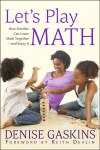“Spring cleaning has made my desk look worse than before. Nobody feels like studying. The kids would rather be outside, and their mom would rather take a nap. If I line everyone up on the curb in the morning, do you think the yellow bus will take them?”
Homeschool burnout — it’s a perennial problem. If you’re suffering from lethargy and can’t face another day of school work, here are some ideas that kept me going long enough to graduate almost-five kids (my “baby” finishes homeschooling this spring!):
(1) Re-read the homeschooling books on your shelves, or get some new ones from the library. Write down your favorite quotes as you read. Try to read about one a month, to help get your enthusiasm back. And then read at least one new homeschooling book per year to help you stay inspired.
(2) Connect with other homeschoolers. Meet with friends for tea, or have a Mom’s Night Out while Dad babysits. Talk about substantive things, like educational philosophy — what you like about homeschooling, and what you’d like to change. Share your dreams for your children. Remind each other why you’re doing this.
(3) Attend support group meetings. I find that after so many years, I let the meetings slide. I think, I already know everything they are going to say. But being with other homeschoolers is encouraging. And if you find out that you can help a new homeschooler with advice, that gives you a boost, too.
(4) Find one or two forums where you can become one of the resident experts, and answer posts as often as you can. As with number 3 above, being able to give advice (and being appreciated for it) can give you the energy to keep on going.
(5) Go to a homeschooling convention, if you get the chance. The speakers are stimulating, and you may find some new book or tool that sparks your imagination.
(6) Do school anyway. It may seem impossible when you’re stuck in the doldrums, but once you get going, you may find it easier. The light of understanding in a child’s eyes can give Mom quite a lift!
(7) Try something completely different. If you have always used a textbook program, then set it aside for a month and just read library books. If you have read lots of great literature, then try some hands-on projects, or get out those science experiments you keep putting off, or visit all the museums within a two-hour radius, or… I’m sure you can think of something that has been lingering on your good-intentions list. I never could stand to teach the same old thing every year, and none of my five kids got exactly the same education. Happily, there is always another way to approach any homeschooling topic. How about Gameschooling?
(8) Figure out what your students are able to do on their own, and let them do it. Encourage them to develop as much independence as possible.
(9) Use some of your children’s independent time to learn something new for yourself. Have you always wanted to try painting, or crochet, or woodworking? Be an example of life-long learning.
(10) Start (or join in progress) a group class or co-op. You may be able to trade around with some other families: you teach history and others teach math or cooking, or whatever arrangement fits for you. This is especially helpful for those time-consuming projects that always seem to get put off, like art or science experiments.
(11) Try some of these intensely practical Tips For Coping With Homeschool Burnout.
(12) And are you a Christian homeschooler? Then pray! Your Father knows what you need, and Immanuel is with you always. Try praying your way through 1 Corinthians 13 (or this homeschooling version).
If you have any other ideas for beating the burnout blues, please share!
Homeschooling is not always peaches and cream. If anyone promised you that, they lied. But be assured that it homeschool burnout is not a terminal condition. You will recover your joy in sharing your children’s education.
I learned one thing from every story I’ve ever read: adventures never run smoothly.
And what greater adventure could there be than to introduce your child to all the wonderful things in God’s world?

This blog is reader-supported.
If you’d like to help fund the blog on an on-going basis, then please join me on Patreon for mathy inspiration, tips, and an ever-growing archive of printable activities.
If you liked this post, and want to show your one-time appreciation, the place to do that is PayPal: paypal.me/DeniseGaskinsMath. If you go that route, please include your email address in the notes section, so I can say thank you.
Which I am going to say right now. Thank you!
“FAQ: Homeschool Burnout” copyright © 2017 by Denise Gaskins. Image at the top of the post copyright © greg westfall via Flickr (CC BY 2.0).






 Games are great for practicing math your child has already learned. But for introducing new concepts, you’ll probably want to follow your textbook.
Games are great for practicing math your child has already learned. But for introducing new concepts, you’ll probably want to follow your textbook. 








 Take a mental trip to infinity by playing with fractals. Cynthia Lanius’s online
Take a mental trip to infinity by playing with fractals. Cynthia Lanius’s online 

